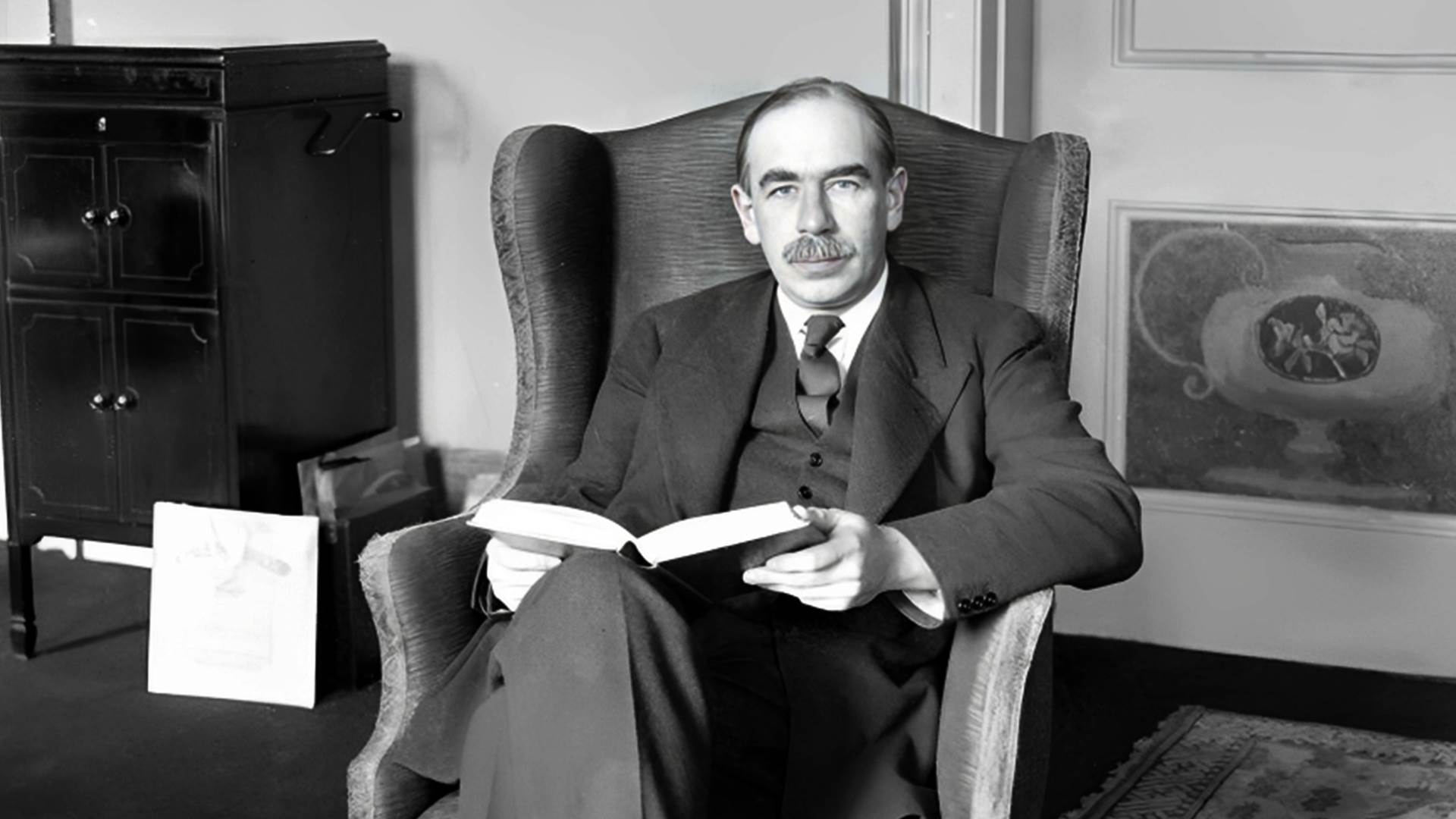John Keynes, the founder of Keynesian economics theory

Today, we are discussing one of the most prominent financial and banking figures in modern history, and talks briefly about his journey; John Maynard Keynes.
John Maynard Keynes is one of the most important and influential economists of 20th century, and the owner of one of the major schools in economics, which is the Keynesian theory, his ideas had a great impact on the fields of economics today, whether theoretical or practical.
John Maynard Keynes was born in Cambridge in 1883, and died in April 1946 in Ferrel. His beginnings were in Eton, where he revealed a great talent, especially in history and mathematics, then he joined the University of Cambridge to study mathematics.
Keynes worked in the press and in financial activity, then worked as an employee, then moved to the India office in British Ministry of Defense, so he took on a major task in auditing the Indian financial and monetary situation before World War I, and returned to work in British treasury As responsible for relations with Britain's allies, on the provision of foreign exchange to finance the war.
John Keynes was a successful investor, and managed to build a huge fortune; However, in light of the great recession in 1929, he almost went bankrupt, but he returned to build his wealth again, his interests in politics led him to study economics to be a professor of economics.
His most important work was The General Theory of Employment, Interest and Money book, (1935-1936), in which he defended the government's adoption of a policy of full employment as a solution for economic recession.
Where he believed that governments should intervene through financial and monetary measures to limit the effects of economic recession, and economic abundance.
His ideas are considered the basis for the Keynesian school, as it was the engine of the economic policies of US President Barack Obama and other leaders to save the economy from recession.
As the great recession that the world went through during 2008 witnessed an interest in the Keynesian theory; Because there are great similarities to recession of 1930s; As the existing economic theory was unable to explain the causes of the severe economic collapse that the world witnessed, and it failed to provide solutions to revive production and employment.
One of the most important things his theory is based on is that the state can, through tax policy, fiscal and monetary policy, control economic cycles, and he has other books on money theory and probability theory.
The success of the Keynesian theory had great success in the world in the fifties and sixties of the last century, so that all the capitalist governments in the world applied it.
Keynes believes in his theory that employment may be less in the case of a balanced economy and government should encourage spending through deficit financing to ensure work for all.








